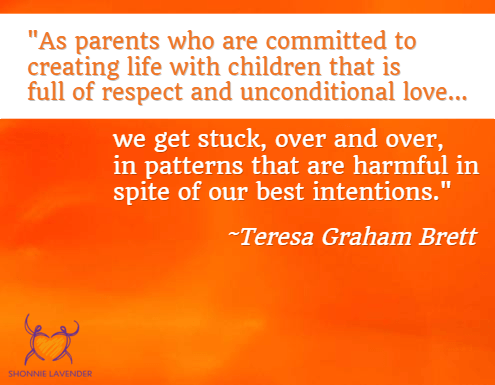Parents (and non-parents alike) have plenty of opinions on what makes “better” children and “better” parents. Nursing. Attachment parenting. Continuum Concept principles. Bed-sharing. Early literacy. Limited media. Time outdoors. Unschooling. And on and on.
What we often don’t consider, however, are the beliefs that undergird all of our choices as parents. Sure, the practices listed above reflect beliefs, but these are on the surface; there are others that lie below our conscious awareness. It’s these deeper beliefs that play a larger role in shaping our parenting experience, and, in fact, these beliefs may even run counter to the surface beliefs that we can more easily articulate.
Beliefs about adults and children
Our cultural belief is that children are less than adults and therefore deserve to be controlled because of their inferior status. This statement is paraphrased from my current reading list, Parenting for Social Change by mother and author, Teresa Graham Brett. This book is a challenging, wonderful, paradigm-shifting book that gives pause to even deeply conscious parents.
Knowing that most of my community are loving, compassionate, barrier-breaking parents, I’m guessing that your first reaction will be to think, “I don’t believe that.” It’s not what you’d espouse, yet I’m confident that when you look underneath, you’ll see that you do in fact harbor some variation of this belief in adult superiority. This belief took root in your (and my) childhood whenever:
- adults minimized or trivialized your feelings or perspective
- you were forced to do something you didn’t want to do
- you were shamed, judged, criticized, or otherwise “made wrong” for something you did
- your wants were either not considered at all or considered last
- people said things like “because I said so,” or “because I’m the adult,” or “because it’s my house and these are my rules”
As a child we learned that adults were more important and children were second class. The adults around us had this belief handed down to them as well. And unless we actively shed this set of beliefs, it still drives our behavior, even if we’re unconscious of it.
Developing different guiding beliefs
An effective if emotionally-testing place to begin your journey is to observe yourself in action and determine the beliefs that might fuel you right now. To start your personal excavation, take time to write down responses to the following questions.
- What did you learn about childhood when you were a child?
- What did you learn about adulthood when you were a child?
- When you were a child, what did you look forward to being able to do/not do once you became an adult?
- What generalizations do you make about children (even if they’re offered “jokingly”)? You can also break this into subgroups of children — babies, 2-year-olds, pre-teens, teens, college kids — as a more specific place to start.
- What do you think you know better than your child(ren)?
It is not my desire to induce guilt by asking these questions. My intention is simply to awaken you regarding ways that you may unwittingly be undermining your vision to co-create harmonious, loving, and kind relationships in your home. Finally, in case you need some examples from someone else who is dedicated to parenting in a loving, gentle, conscious, and personhood-honoring way, let me give you some of the beliefs that I’ve uncovered lurking in my personal closet:
- Adults do work that is important and children do things that are trivial. Though this doesn’t reflect beliefs I usually articulate, it’s evidenced by my common willingness to give my daughter’s “Mama, come look!” request the “I’ll be two minutes” rebuff. It’s also easy to see in my frustration level when my daughter “interrupts” me, yet I’ll readily interrupt her activity to tell her “important” things.
- Children should be appreciative of what they’re given rather than complaining. Proof of this belief can be found in my irritation when my daughter doesn’t want to eat the toast I prepared because it’s sliced the “wrong way.”
I hate admitting that I haven’t completely released all old paradigm beliefs, yet I want to make these discoveries because I’m committed to creating a different world and the only power I have to do this is to change how I do what I do. So if you’re ready to change this world and the experience you and your growing people have living here, start your personal excavation today!

